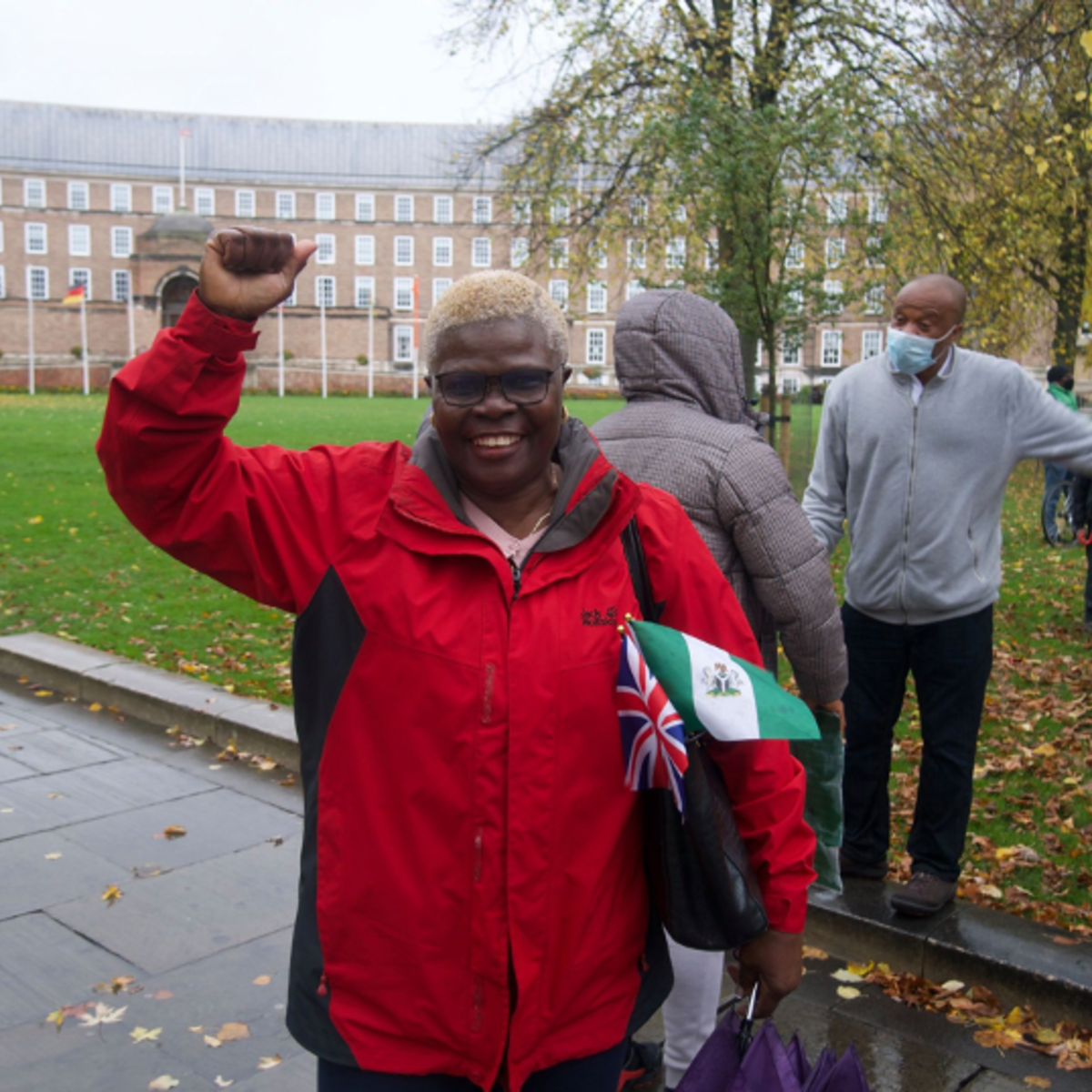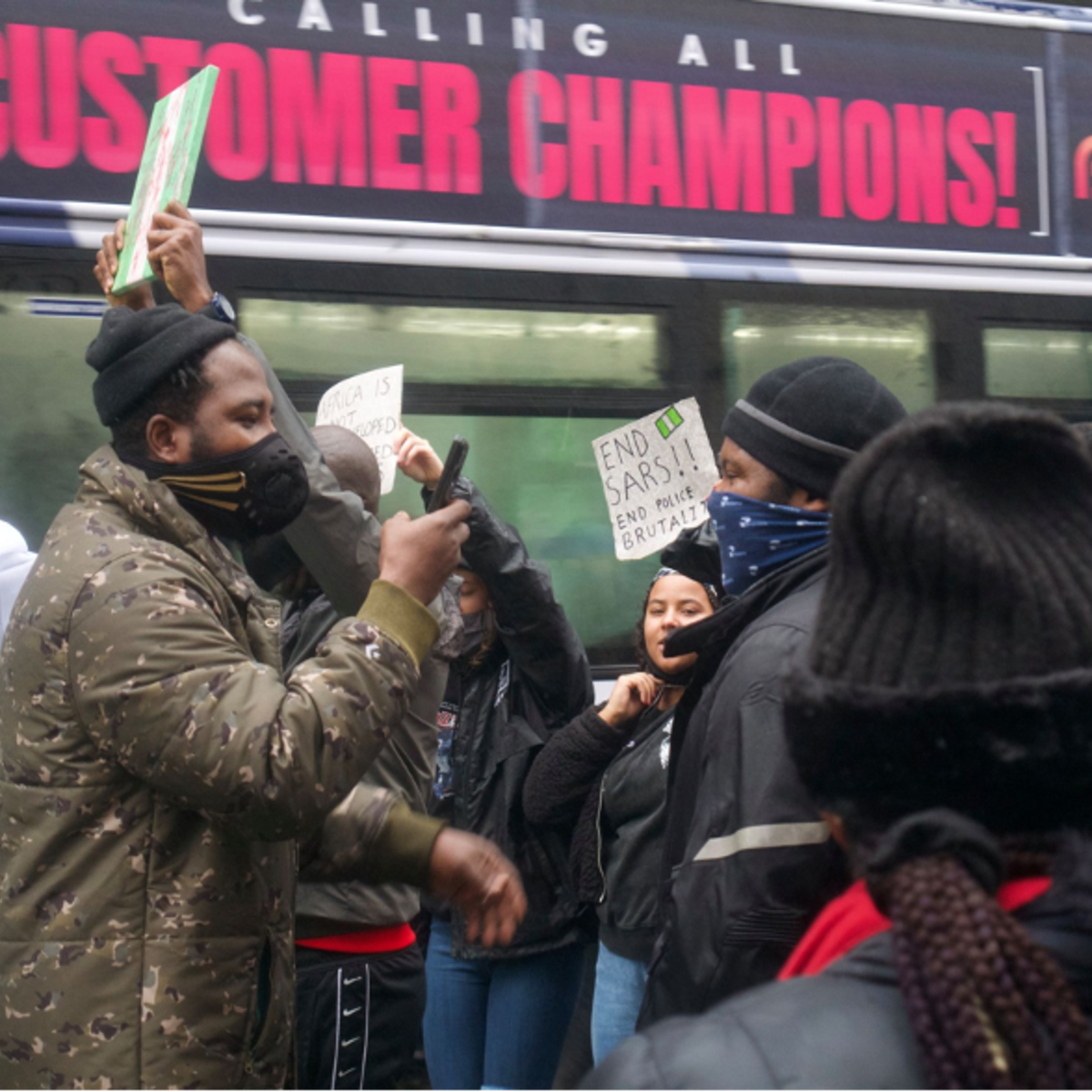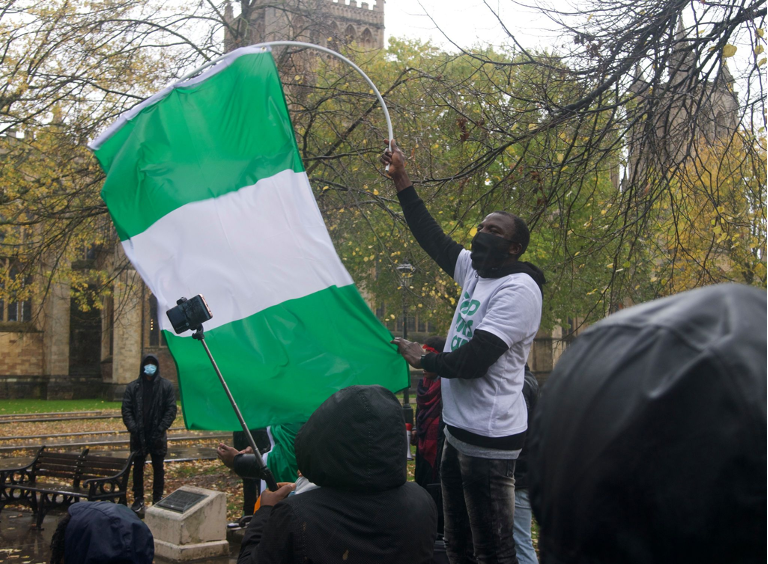By Morayo Omogbenigun, Second Year, Social Policy
The #EndSARS Movement is turning into more than a movement against police brutality.
It started with Nigerian youth being tired of constant harassment from the Special Anti-Robbery Squad, a sect of the Nigerian police gone rogue. Now, it’s a movement against bad governance, the legacy of colonialism on the Continent, LGBT rights, and so much more.
Social media has been our saviour throughout this movement – traditional broadcast journalism has failed Nigeria. We are turning to digital archives to collate our history and make sure our story gets told the way we want it to – free from manipulation from the government.
The tensions across the country came to an all-time high on 20 October, the Lekki Toll Gate Massacre. At 12pm, the governor of Lagos state, Jide Sanwo-Olu, announced a 24-hour curfew to ‘ensure the safety of protestors’ starting at 4pm.
The Nigerian National Broadcasting Commission warns media houses not to "embarrass government" as #EndSARS protests lead to deaths. https://t.co/Utc7a0qwnX#BBCAfricaLive pic.twitter.com/GWfz9X2UhJ
— BBC News Africa (@BBCAfrica) October 21, 2020
All of this was posted on Twitter - how many Nigerians have access to WiFi, better yet, electricity? This was a clear, premeditated attack against a youth empowered by the internet.
What this turned into was state-sanctioned murder: the Nigerian army opened fire on innocent protestors. Even worse, the CCTV, lights and electricity at the tollgate were turned off. The only way anyone knew what was going on was when DJ Switch, a Ghanaian DJ and entertainer, went live.
Thousands watched as people were slaughtered on IG Live. Millions watched as people were desperately tweeting for ambulances, begging for help as their phones were dying and signal got progressively worse. Without Instagram and Twitter, how would we have known anything was happening?
In President Buhari’s address to the nation on the 22nd of October, he didn’t acknowledge any of the victims. The Nigerian government is hellbent on the narrative that there were no casualties at the Lekki Toll Gate Massacre, despite a growing number of protestors being missing and reports of soldiers dragging bodies away at the scene.


I decided to speak to a few Nigerian students at the University to get their thoughts on how they feel, having watched a massacre via Instagram Live, with many of us (including myself) having family that live close to the Lekki Toll Gate. How are we supposed to concentrate on academic work and adjust to the isolation of online teaching when our country is being turned into a war zone?
Ruth, a Nigerian second year Politics and French student, told me: ‘Social media has granted us the ability to hold the Nigerian government directly accountable […] allow[ing] us to preserve the legacy of those we’ve lost during the protests and remember[ing] their names and what Nigerians are fighting for.’
Meanwhile, Samuel, a Nigerian second year Electrical and Electronic Engineering student, explained at first, in all honesty, he felt ‘nothing’.
After viewing an increasing amount of footage through social media, however, he ‘began to feel upset and perturbed’; the more he watched, ‘the more heightened these feelings became’.
‘Awareness is great,’ he told me, ‘However, I couldn't help but feel powerless in the knowledge that my homeland is in chaos and I don't know what I could do to stop it.
[...] I don't know what direction this will take, I just hope it can be leveraged to free my people from these demons in uniform’
The government has taken a leaf out of Trump’s “fake news” playbook
For Jini, a second year English student with family who live in Lagos, the events of 20 October, ‘felt like a collective standstill.’
‘We all watched as our worst fears became reality. Irrespective of location, we all felt the trauma across our various screens as we watched a man lose his life through an Instagram stream.’
‘The recording and consumption of trauma came to personify something completely separate in its own right – the shared consciousness of what it has meant to be Nigerian all these years, the incredulity of the fact that we had all just lived like this and never did anything about it.’
BREAKING: Lagos State governor, Babajide Sanwo-Olu (@jidesanwoolu), just announced that nobody was killed during an attack on peaceful #EndSARS protesters at Lekki toll gate on Tuesday night.
— Pulse Nigeria (@PulseNigeria247) October 21, 2020
Eyewitnesses reported at least 7 dead. pic.twitter.com/533meP6TGB
If anyone told me a month ago there would be a massacre twenty minutes away from my home in Lagos, I would’ve laughed and asked them if we lived in the 1980s, an era rife with civil unrest.
The government has taken a leaf out of Trump’s “fake news” playbook, and is trying to push the narrative that the IG Live and other photographic evidence was photoshopped. If the news cannot afford to publish factual accounts of the events that transpired, surely we’re being fed propaganda?
Surely, the pre-emptive shutting off of CCTV, the lights and the lack of media coverage is a coordinated attack by a government that seeks to oppress its citizens for daring to want more?
End SARS protestors take to the streets of Bristol
BME mental health and the Black Lives Matter movement
We must rebel against this, we must not forget those who have died and those who continue to be targeted today. Do not forget Lekki, Mushin, Ikorodu, Alausa, Yaba, Umuahia and Kano – more locations are being added to this list as I write this.
To forget them is to buckle again in the face of an oppressive government. How is it that Fela Kuti was singing about Buhari 30 years ago, and this same man is still reigning terror on us? Now, we move onto the second stage of the fight – keeping up the energy until the 2023 presidential election. If we don’t take history into our own hands, are we any different to the previous generation?
Here are some places you can donate to:
To keep updated with the protests, follow the #EndSARS.
Featured Image: Epigram / Guy Taylor
What are your thoughts on the #EndSARS Movement?









